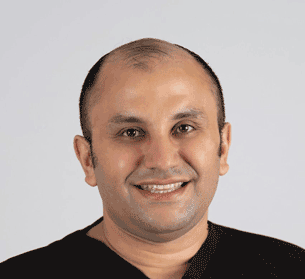
Why Medical Communications Are Essential for Your Medical Affairs Strategy Today, let’s delve into the crucial role of medical communications…
Our AI-driven analytics solutions are designed to serve the unique needs of pharmaceutical, biotech, CROs, and academic researchers. We leverage advanced predictive modelling, image analysis, and deep learning techniques to unlock valuable insights from complex clinical research data. Our solutions help accelerate study timelines, improve data quality and accuracy, and drive better decision-making throughout the clinical research process.
Our Predictive Modelling service is a powerful tool for healthcare providers and clinical researchers looking to gain a competitive edge in the fast-paced and ever-changing landscape of healthcare and clinical trials. By leveraging advanced ML algorithms and large, complex datasets, we develop accurate and reliable predictive models that can help you make better decisions, improve patient outcomes, and reduce costs. Whether you're looking to identify patients at risk of developing certain conditions, optimise study design, improve patient recruitment, or predict study outcomes, our team of experts has the experience and expertise to develop predictive models that meet your specific needs.
Our RWE Analytics service utilises the latest AI technology to automatically extract valuable insights from a wide range of clinical documents, including CRFs, AERs, SAPs, CSRs, and more. By harnessing the power of AI, we can quickly and accurately extract data from these documents, providing you with a comprehensive view of real-world evidence that can inform decision-making and improve patient outcomes. Our service is designed to be flexible and scalable, allowing us to process large volumes of data quickly and efficiently, while maintaining the highest standards of accuracy and reliability. Whether you're looking to understand the safety and efficacy of a new treatment, identify potential risks and benefits, or evaluate the real-world impact of a medical device, our RWE Analytics service can provide the insights you need to make informed decisions and drive better results.
Our AI-assisted image analysis solution helps CROs, biotech, and pharmaceutical companies to accelerate and improve the accuracy of medical image analysis in clinical trials. By leveraging advanced machine learning algorithms, our solution can automatically analyse and interpret a wide range of medical images, including X-rays, CT scans, MRIs, pathology slides, and immunofluorescent images, with a high degree of accuracy and consistency. This not only reduces the time and effort required for manual image analysis but also minimises the risk of human error. Our solution can be used for a wide range of applications, including tumour detection, measurement, and tracking, as well as the assessment of treatment response and the analysis of pathology slides for disease diagnosis and staging. With our AI-assisted image analysis solution, CROs and sponsors can improve the speed and accuracy of their clinical trials, while also gaining valuable insights into disease progression and treatment efficacy.
Our deep learning models for diagnosis solution helps healthcare providers and CROs to improve the accuracy and speed of disease diagnosis. By leveraging advanced deep learning algorithms, our solution can automatically analyse and interpret a wide range of medical data, including medical images, electronic health records, and laboratory test results, to identify patterns and make accurate diagnoses. This not only reduces the time and effort required for manual diagnosis but also minimises the risk of human error. Our solution can be used for a wide range of applications, including the diagnosis of cancer, cardiovascular disease, neurological disorders, and infectious diseases. With our deep learning models for diagnosis solution, healthcare providers and CROs can improve patient outcomes, reduce costs, and accelerate the development of new treatments.
Our Data Processing for Decentralised Trials service utilises AI to overcome the challenges of patient compliance and data errors in decentralised clinical trials. Our algorithms analyse patient data to optimise eCOA notifications and improve patient compliance, whilst our AI programmes assist patients in submitting high-quality data to limit insufficient submissions and processing errors. With our service, CROs and medical research institutions can have confidence in the accuracy and reliability of their trial data, whilst also improving patient engagement and streamlining data collection.
Our AI for Data Quality and Safety solution helps CROs, biotech, and pharmaceutical companies ensure the highest standards of data quality and patient safety in clinical trials. By leveraging advanced AI algorithms, our solution can automatically detect and correct errors in clinical data, ensuring that it is accurate, complete, and consistent. Additionally, our solution can monitor patient safety in real-time, identifying potential safety signals and alerting clinical teams to take appropriate action. With our AI for Data Quality and Safety solution, CROs and sponsors can have confidence in the integrity of their clinical trial data, while also ensuring the safety and well-being of their patients.




Our team has extensive experience in developing and implementing AI-driven analytics solutions for clinical research, real-world evidence, and healthcare applications.
We are committed to delivering the highest quality solutions that meet the rigorous standards of the healthcare and life sciences industries.
We stay at the forefront of the latest advances in AI and machine learning, ensuring that our solutions are cutting-edge and deliver maximum value to our clients.
We work closely with our clients to understand their specific needs and develop customised solutions that meet their unique requirements.
We offer a range of services, from one-off projects to ongoing support and maintenance, ensuring that our clients have the flexibility to choose the level of support that best meets their needs.
Our solutions have a proven track record of delivering tangible results, including improved patient outcomes, reduced costs, and accelerated research timelines.

Why Medical Communications Are Essential for Your Medical Affairs Strategy Today, let’s delve into the crucial role of medical communications…

Writers and content creators! Are you ready to level up your writing game? Writers and content creators! Are you ready…

GenAI: A Friend by MedDots I couldn’t wait to share this with you all. Have you ever heard of GenAI?…
Our team at MedDots was thrilled to collaborate with Orthoglobe on the development of an AI-powered model for predicting osteoarthritis progression. With our extensive experience in AI and deep learning, we were able to bring a unique perspective to this intradisciplinary project.
The goal of this project was to tackle the ever-growing problem of osteoarthritis and its huge burden on patients, their families, and the healthcare system. To achieve this, we integrated medical data and imaging from a large database of over 6000 patients who were followed for 10 years. This data was used to train a deep learning model that could accurately predict the progression of osteoarthritis in individual patients.
Our team's expertise in deep learning and data analysis was crucial in developing this innovative platform. We worked closely with Orthoglobe to ensure that the model was accurate, reliable, and easy to use. Our approach allowed us to identify key biomarkers and risk factors for osteoarthritis progression, which will be invaluable in developing new treatments and interventions.
Thanks to our collaboration with Orthoglobe, this AI-powered platform has the potential to revolutionise the way we approach osteoarthritis treatment and care. We are proud to have been a part of this project and look forward to seeing the positive impact it will have on patients and the healthcare system.
Our team at MedDots was excited to collaborate with academic researchers from UK on the development of an AI-assisted image analysis tool to identify spinal anomalies. With our extensive experience in AI and deep learning, we were able to bring a unique perspective to this project.
The goal of this project was to improve the accuracy and efficiency of spinal anomaly diagnosis. To achieve this, we used a large database of spinal images to train a deep learning model that could accurately identify various spinal anomalies.
Our team's expertise in deep learning and image analysis was crucial in developing this innovative tool. We worked closely with the academic researchers to ensure that the model was accurate, reliable, and easy to use. Our approach allowed us to identify key features and patterns in the spinal images that are indicative of various anomalies.
Thanks to our collaboration with the academic researchers, this AI-assisted image analysis tool has the potential to revolutionise the way we approach spinal anomaly diagnosis. We are proud to have been a part of this project and look forward to seeing the positive impact it will have on patients and the healthcare system..
Our team at MedDots is currently collaborating with a biotech company on an exciting ongoing project to discover the potential role of an established drug in the treatment of Alzheimer's disease (AD) using AI technology.
The project aims to leverage the power of AI to analyse large datasets of medical and scientific literature, as well as clinical trial data, to identify potential new uses for existing drugs. By applying advanced machine learning algorithms, our team is working to identify patterns and connections that may indicate the potential efficacy of a particular drug in treating AD.
Our expertise in AI and data analysis, combined with the biotech company's deep understanding of drug development and AD, makes for a powerful collaboration. Together, we are working to uncover new insights and potential treatment options for this devastating disease.
We are proud to be part of this important project and look forward to seeing the results of our ongoing collaboration. Our goal is to help accelerate the discovery of new treatments for AD and improve the lives of those affected by this condition..
AI can analyze large amounts of data and identify patterns that may not be apparent to human clinicians, leading to more accurate and timely diagnoses.
We follow rigorous quality and safety standards in the development and implementation of our AI-driven Solutions, including validation, testing, and ongoing monitoring to ensure optimal performance.
AI can help streamline various aspects of clinical trials, including patient recruitment, data management, and analysis, leading to faster and more efficient trials with improved data quality and safety.
We follow strict privacy and security protocols to protect patient data, including de-identification, encryption, and secure storage, and we comply with all relevant regulations and guidelines.
Contact us to schedule a consultation and learn more about how our AI-driven Solutions can help your organization improve patient outcomes, streamline processes, and drive innovation.
